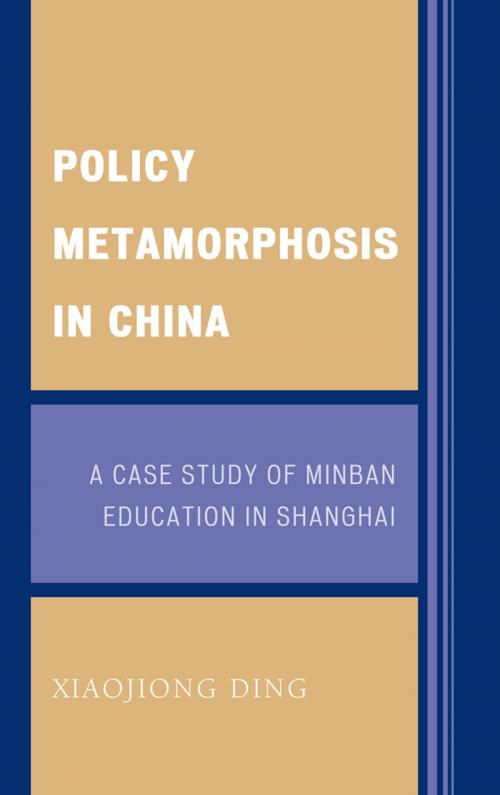Policy Metamorphosis in China
A Case Study of Minban Education in Shanghai
Nonfiction, Social & Cultural Studies, Political Science, International, Foreign Legal Systems, Reference & Language, Education & Teaching, Educational Theory, Educational Reform, History, Asian, China| Author: | Xiaojiong Ding | ISBN: | 9780739171868 |
| Publisher: | Lexington Books | Publication: | December 1, 2011 |
| Imprint: | Lexington Books | Language: | English |
| Author: | Xiaojiong Ding |
| ISBN: | 9780739171868 |
| Publisher: | Lexington Books |
| Publication: | December 1, 2011 |
| Imprint: | Lexington Books |
| Language: | English |
China has been experiencing great economic and social changes since the late 1970s when the Reform and Opening-Up policies were accepted. While some Sinologists argue that such changes have made the Chinese structure of authority fragmented and discrepant, and have weakened the directive power of the Central Government, a few others emphasize that despite a certain degree of economic decentralization and segmentation of public power, the Central Government has been seeking ways to hold the nation together. Consequently, while the former argue that due to the centrifugal nature of the political system, policy implementation is bound to deviate from the route specified by the Central Government, the latter hold that national policies are carried out faithfully, with minor deviations only in certain circumstances.
This book studies the processes of policy implementation in contemporary mainland China by taking minban/private education at the level of basic education in Shanghai as an example. Based on 65 interviews conducted during 2001 and 2004, three moduses of policy implementation are proposed, and the Model of Structural Fracturation is advanced as the prevailing modus of policy implementation in contemporary China. The model argues that policy metamorphosis during implementation is not something random; in contrast, it is determined by structural factors that no single policy actor can manipulate. The pyramid of Chinese politics is a loose construction, with vertical and horizontal fracturations between different layers. The model highlights the fact that governments at the county/district level are remote from and beyond the control of the Central Government and the provinces. They deserve more attention than they have received.
Contrary to Western perspectives which regard the structural fracturation in the Chinese polity as dangerous for national stability and unity, this book takes the fracturation as an important and delicate element of the Chinese mode of governance, and suggests that the very strength of the state lies in its capacity to tolerate local deviation and to embrace it into national institutions.
China has been experiencing great economic and social changes since the late 1970s when the Reform and Opening-Up policies were accepted. While some Sinologists argue that such changes have made the Chinese structure of authority fragmented and discrepant, and have weakened the directive power of the Central Government, a few others emphasize that despite a certain degree of economic decentralization and segmentation of public power, the Central Government has been seeking ways to hold the nation together. Consequently, while the former argue that due to the centrifugal nature of the political system, policy implementation is bound to deviate from the route specified by the Central Government, the latter hold that national policies are carried out faithfully, with minor deviations only in certain circumstances.
This book studies the processes of policy implementation in contemporary mainland China by taking minban/private education at the level of basic education in Shanghai as an example. Based on 65 interviews conducted during 2001 and 2004, three moduses of policy implementation are proposed, and the Model of Structural Fracturation is advanced as the prevailing modus of policy implementation in contemporary China. The model argues that policy metamorphosis during implementation is not something random; in contrast, it is determined by structural factors that no single policy actor can manipulate. The pyramid of Chinese politics is a loose construction, with vertical and horizontal fracturations between different layers. The model highlights the fact that governments at the county/district level are remote from and beyond the control of the Central Government and the provinces. They deserve more attention than they have received.
Contrary to Western perspectives which regard the structural fracturation in the Chinese polity as dangerous for national stability and unity, this book takes the fracturation as an important and delicate element of the Chinese mode of governance, and suggests that the very strength of the state lies in its capacity to tolerate local deviation and to embrace it into national institutions.















